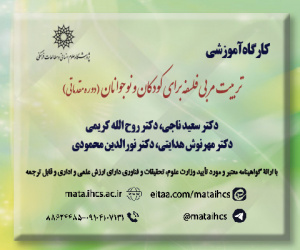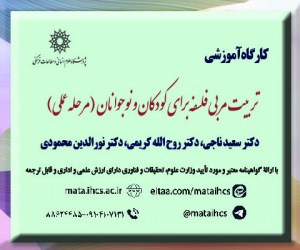انتقاد به عقل رایج دوره روشنگری از منظر تفکّر تاریخی هردر (مقاله پژوهشی دانشگاه آزاد)
درجه علمی: علمی-پژوهشی (دانشگاه آزاد)
آرشیو
چکیده
تفکّر تاریخی، به نحوه نگرشی اطلاق می شود که آدمی و تفکّر او را در بستر تاریخی و اجتماعی اش مورد ملاحظه قرار داده و هرگونه فهم، شناخت، تفسیر و کنش آدمی را تاریخی می داند. در مقابل، تفکّر غیرتاریخی تحت تأثیر اندیشه ذات گرایانه ارسطویی و عقل ریاضیاتی دکارتی، به معنایی واحد و جهان شمول از عقل قائل است که آن را معیار و محک سنجش همه دوره های تاریخی تلقّی می کند. پرسش اصلی مقاله این است که هردر با چه نگرشی، تفسیر رایج عصر روشنگری را مورد انتقاد قرار می دهد و بررسی وجوه انتقادات او در این زمینه، هدف این پژوهش است. از این رو با روش توصیفی-تحلیلی به بررسی دیدگاه های او پرداخته شده است. فلسفه تاریخ هردر مبتنی بر اصل پویایی تاریخ است و این پویایی حاصل حرکت و پویایی سرشت انسان به تبع حرکت و پویایی تفکّر و اندیشه او می باشد. هردر معتقد به تاریخی بودن تفکّر و به تبع آن زبان، فرهنگ، دین و به طور کلّی تمامی شئونات بشری است و همه اقوام را بر اساس شرایط تاریخی شان در تحقّق هدفی مشترک یعنی «انسانیت» سهیم می داند. از این رو، وی به عنوان یکی از فیلسوفان تاریخی اندیش، موضع متفکّران عصر روشنگری را مورد انتقاد قرار می دهد و با تلقّی رایج این عصر که عقل مدرن را محک و معیار سنجش همه امور می دانست، مخالفت می کند. فرضیه این پژوهش این است که هردر تفکّر غیرتاریخی را انتزاعی، غیرواقع بینانه و ناتوان از درک واقعیت های تاریخی و فرهنگی هر عصر و دوره تاریخی می داند و معتقد است درک و شناخت صحیح، درک و شناخت تاریخی است.Critique of the common sense of the Enlightenment from the perspective of Herder's historical thought
Historical thinking refers to the attitude that considers man and his thinking in his historical and social context and considers any understanding, cognition, interpretation and action of man as historical. In contrast, non-historical thinking, influenced by Aristotelian essentialist thought and Cartesian mathematical reason, considers a single and universal meaning of reason,which it considers the criterion and benchmark of all historical periods. The main question of the article is with what attitude does Herder criticize the common interpretation of the Enlightenment and the purpose of this research is to examine the aspects of his criticisms in this field. Therefore, his views have been studied by descriptive-analytical method. Herder's philosophy of history is based on the principle of the dynamics of history and this dynamism is the result of movement and dynamism of human nature as a result of movement and dynamism of his thinking and thought.Herder believes in the historical nature of thought, and consequently in language, culture, religion, and all human dignity in general and considers all nations to share in the realization of a common goal, namely "humanity", according to their historical circumstances. Hence,as one of the historical philosophers, he criticizes the position of Enlightenment thinkers and opposes the common view of this age, which saw modern reason as the benchmark for measuring all things.The research hypothesis is that everyone considers non-historical thinking to be abstract, unrealistic and incapable of understanding the historical and cultural facts of each historical period and he believes that correct understanding is historical understanding.



